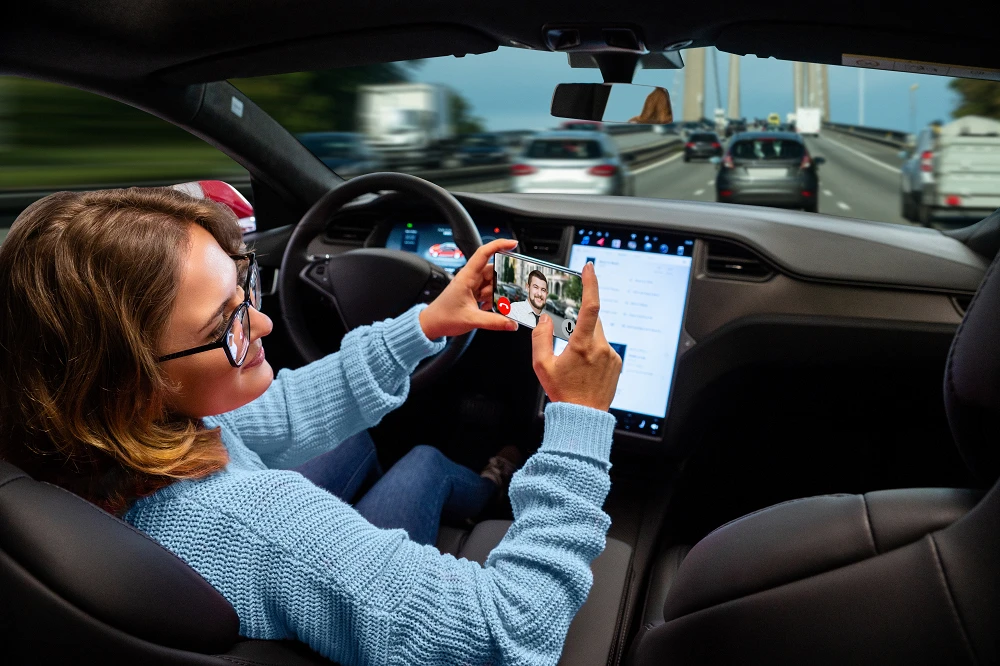Self-driving cars
Self-driving cars: need for action and alternatives in Switzerland

Increasing digitisation has the potential to radically alter Switzerland’s traffic infrastructure in the coming years. Automated and connected vehicles hold the promise of optimising the use of roads and making travel safer and more efficient. But automated mobility also demands a corresponding digital infrastructure. Regulations must be adapted and questions regarding ethics and data protection must be addressed. This TA-SWISS study sheds light on the opportunities and risks of self-driving cars while also examining possible scenarios and the need for action in Switzerland.
Opportunities and risks
Fully automated automobiles have the potential to improve the mobility of the elderly, children and persons with a disability. Moreover, self-driving cars would help to save time, for instance, if people could take care of administrative work during their commute. Thanks to self-driving cars, new transport services could arise, for instance, collectively operated private vehicles that pick up and drop off passengers at the location of their choice. By using a fleet of automobiles to create such ridesharing opportunities, the overall number of cars on the road, and thus the volume of traffic, could be reduced.
Unlike humans, fully automated vehicles are never distracted, and they react faster than human drivers, a feature that could increase road safety. In addition, if self-driving cars were connected with other vehicles and their surroundings, traffic infrastructure could be used more efficiently.
Fully automated vehicles travelling without passengers would, however, significantly increase traffic volume. This development could further spur urban sprawl, as access to traffic infrastructure would be a less decisive factor when choosing a place to live. In addition, self-driving cars could also enter into direct competition with Switzerland’s extensive and well-established public transport network. The mix of vehicles equipped with sophisticated technology, conventional automobiles and other traffic participants brings its own risks and could reduce road safety.
The legal situation in the event of an accident remains unclear, and there are numerous open questions concerning accountability and liability.
Self-driving cars collect massive amounts of data and exchange this information with other autonomous vehicles and with their surroundings. This gives rise to challenges surrounding data privacy, especially with regard to personal data.
Recommendations
Whether self-driving cars will ultimately lead to more efficient mobility or cause ever-greater flows of traffic is largely dependent on the political safeguards introduced. The experts surveyed in the scope of this study agree that regulatory measures are necessary already today. They believe a laissez-faire attitude would lead to a pronounced shift from collective to individual transportation – and culminate in an increase in urban sprawl as well as in greater volumes of traffic. Because self-driving cars will have a major impact on our mobility behaviours, it is critical that we think about and discuss transport systems of the future. A key question addresses the degree to which the government can and should impact the mobility of citizens through the introduction of political framework conditions – or the extent to which the developments should be left to the discretion of the automobile industry and its technologies.
Regardless of these aspects, Switzerland will have to collaborate with other countries to create common and coordinated conditions for the authorisation of self-driving cars. Moreover, liability issues must be settled, and safety standards defined. In addition, driver training and further training for operating highly and fully automated vehicles should be introduced.
To prevent an increase in traffic flows, new passenger transport providers should be allowed on the market and more flexible services for collective transport should be permitted or even promoted with targeted incentives. It is also important to introduce measures regulating use of the data collected by the vehicles. In doing so, policymakers must agree on a position that serves the public interest and that allows them to fulfil their official duties while also safeguarding the data of individual citizens.
Organisation
Project duration
May 2018 to February 2020
Project leaders
- Fabienne Perret, EBP
- Dr Peter de Haan, EBP
- Professor Ueli Haefeli, Interface
- Dr. Tobias Arnold, Interface
Supervisory group
- Dr. Esther Koller-Meier, Präsidentin der Begleitgruppe, SATW
- Dr. Bruno Baeriswyl, Datenschutzexperte, Mitglied des Leitungsausschusses von TA-SWISS
- Prof. Dr. Reinhard Riedl, Wissenschaftlicher Leiter des Fachbereichs Wirtschaft, Berner Fachhochschule BFH, Mitglied des Leitungsausschusses von TA-SWISS
- Laura Andres, Freiburger Transportbetriebe TPF
- Dr. Jörg Beckmann, Mobilitätsakadamie AG
- Andreas Burgener, auto-schweiz
- Prof. Dr. Christian Laesser, Tourismus und Dienstleistungsmanagement, Universität St. Gallen
- Dr. Thomas Sauter-Servaes, Verkehrssysteme, ZHAW School of Engineering
- Prof. Dr. Florent Thouvenin, Informations- und Kommunikationsrecht, Universität Zürich
- Dr. Nicola Tomatis, BlueBotics SA
- Prof. Dr. Eva Weber-Guskar, Privatdozentin Ethik
- Christian Egeler, Bundesamt für Raumentwicklung ARE
- Hauke Fehlberg, Bundesamt für Strassen ASTRA
- Mark Reinhard, Bundesamt für Statistik BfS
- Christoph Schreyer, Bundesamt für Energie BfE
Contact
Christina Tobler, TA-SWISS
christina.tobler@ta-swiss.ch